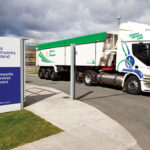
Natural gas: fuelling the future
10th March 2017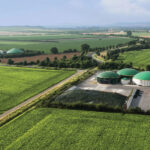
Biomethane: A sustainable industry of scale
11th September 2024Gas Networks Ireland outlines pathway to a net zero carbon network
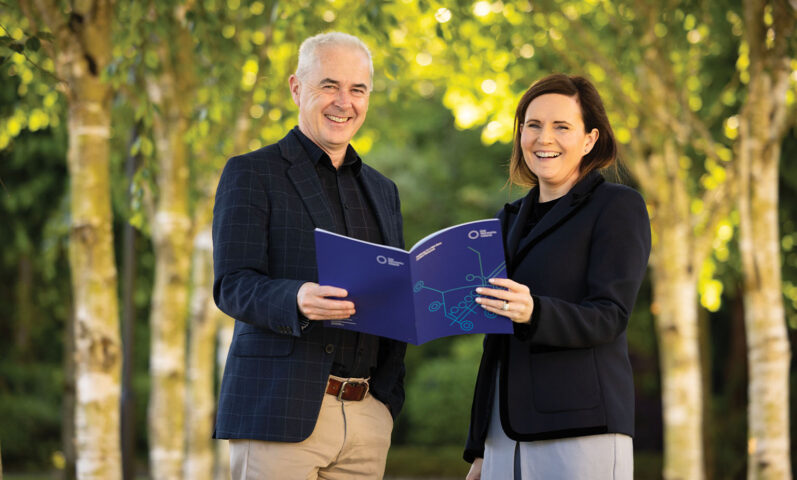
Gas Networks Ireland’s CEO Cathal Marley with Edwina Nyhan, Director of Strategy and Regulation.
Gas Networks Ireland has embarked on an ambitious journey to fully decarbonise Ireland’s gas network by 2045. This transformation will involve repurposing and resizing existing gas infrastructure to transport 100 per cent renewable gases such as biomethane and green hydrogen.
Gas Networks Ireland’s plan is not only pivotal for Ireland’s energy transition but also critical for securing a sustainable and reliable energy future. It aims to reduce the volume of natural gas on the Irish network from over 99 per cent today to 60 per cent by 2036 and completely remove it by 2045. During this transition, renewable gas is expected to increase to 40 per cent (comprising 15 per cent hydrogen and 25 per cent biomethane) by 2036 and to 100 per cent (68 per cent hydrogen and 32 per cent biomethane) by 2045.
The pathway to a net zero carbon network is comprised of four key phases: foundation, development, repositioning, and conversion. These phases mark the progression from initial groundwork to the complete transformation of the gas network.
- Phase 1: Foundation phase (up to 2027): The foundation phase, already underway, focuses on preparing the gas network to handle renewable gases. Key projects include the construction of new anaerobic digestion plants and the Mitchelstown Central Grid Injection facility. This phase ensures the network’s enhanced security and resilience, demonstrating the safe injection and transportation of renewable gases.
- Phase 2: Development phase (2028-2032): During the development phase, Gas Networks Ireland will facilitate increased connections of renewable gas to the network, aiming to meet the national biomethane target of 5.7 TWh by 2030. This phase will also see the commencement of hydrogen blending and the development of initial hydrogen clusters. By the end of this phase, approximately 17 per cent of the gas on the network will come from renewable sources, with 14 per cent biomethane and 3 per cent hydrogen.
- Phase 3: Repositioning phase (2033-2040): In the repositioning phase, Gas Networks Ireland will focus on more extensive repurposing of the gas network and the establishment of hydrogen clusters. By 2040, it is anticipated that nearly half of the gas on the network will be hydrogen, with biomethane comprising 38 per cent and natural gas reduced to 16 per cent.
- Phase 4: Conversion phase (2041-2045): The final conversion phase will see the complete transformation of the gas network into two distinct renewable gas networks: a larger national hydrogen network and a smaller regional biomethane network. By 2045, the network will exclusively transport renewable gases, with an estimated composition of 70 per cent hydrogen and 30 per cent biomethane.
Ireland’s gas network transformation will likely follow four distinct phases:
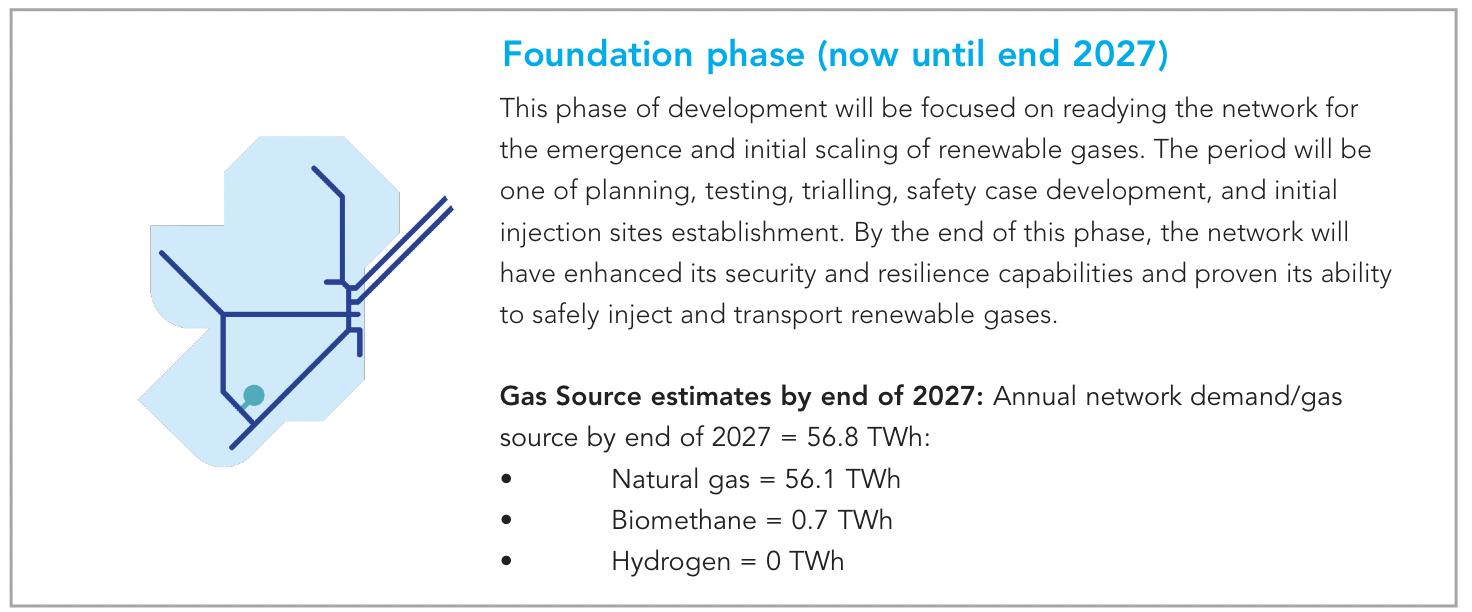
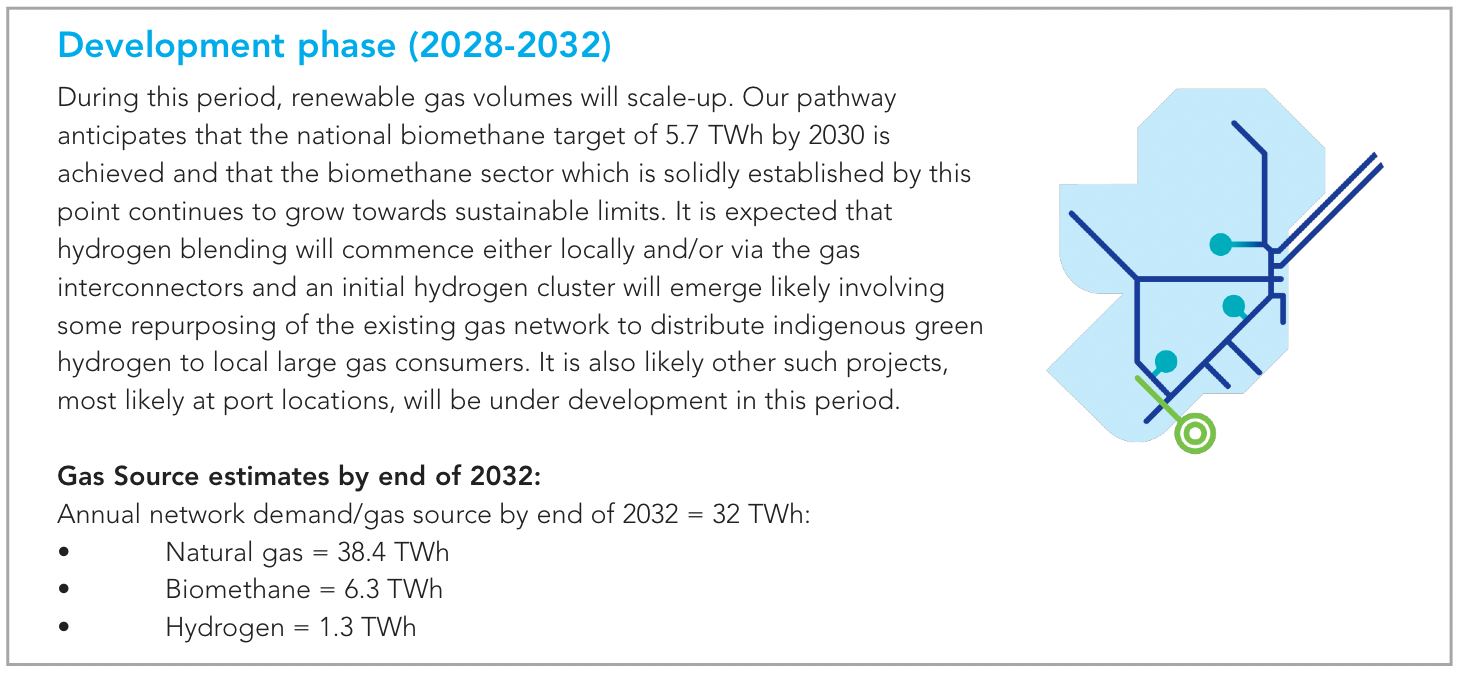
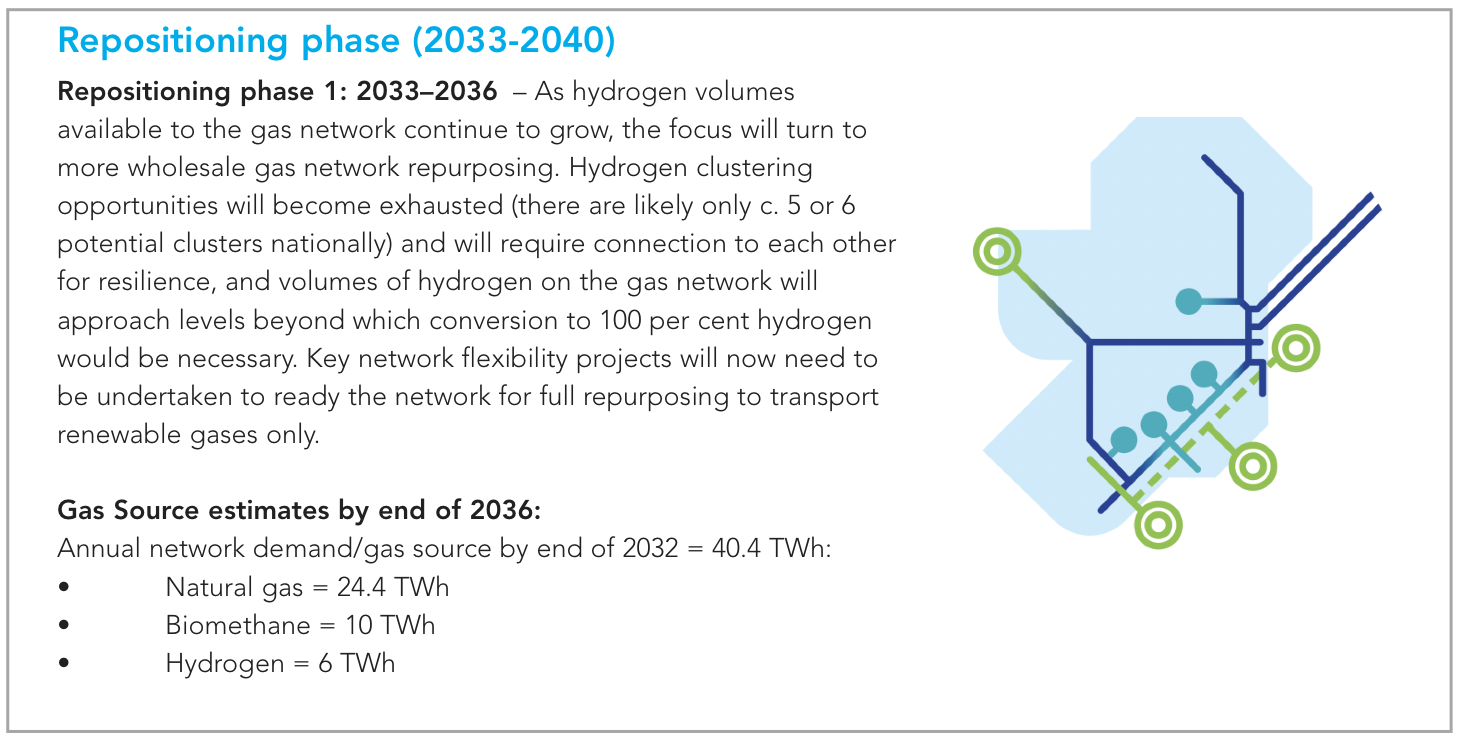
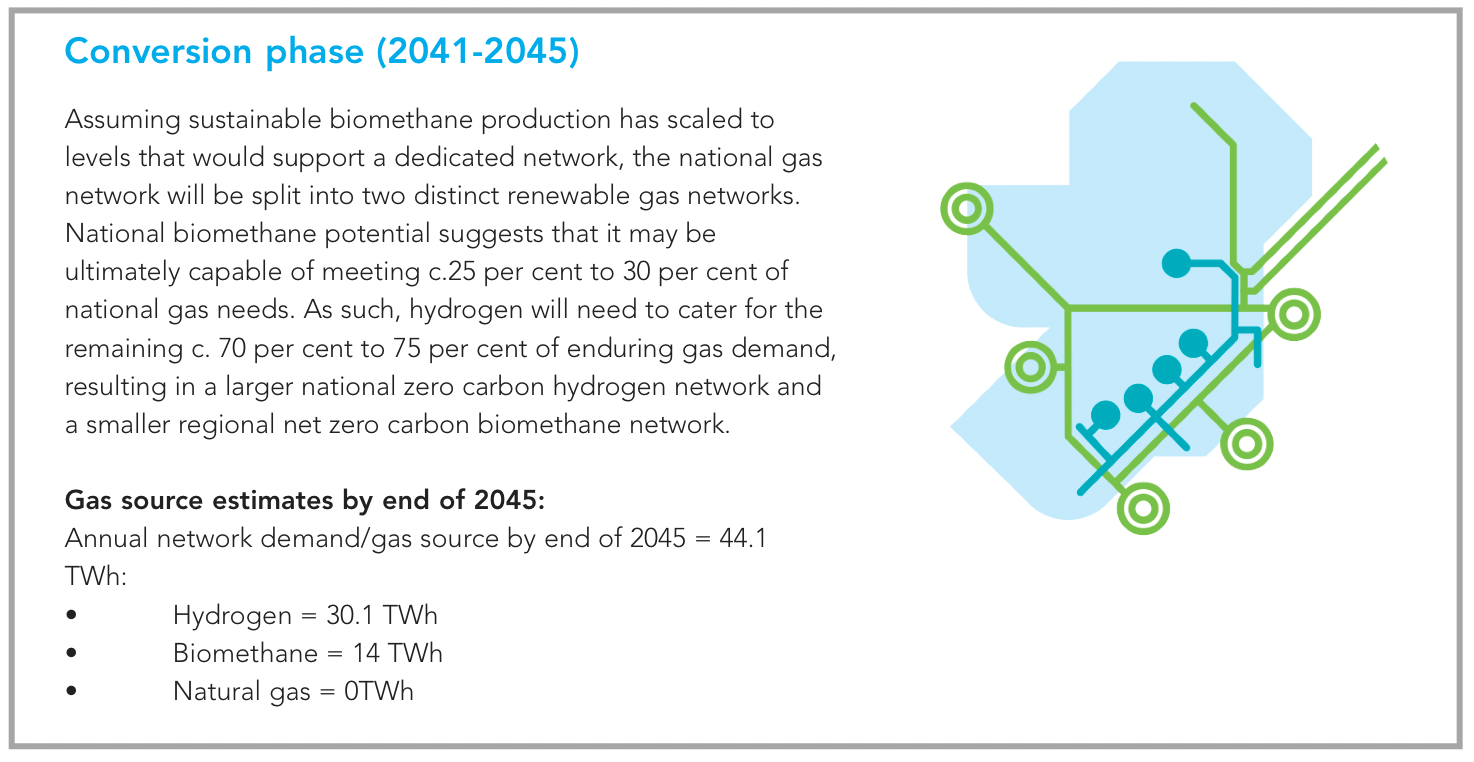
Economic and environmental impact
Cathal Marley, Chief Executive Officer of Gas Networks Ireland, emphasises the dual benefits of this pathway, achieving Ireland’s climate objectives while ensuring energy security and economic stability.
“Developing and repurposing the gas network to be net zero carbon over the next 20 years offers a least-cost and least-disruptive means of decarbonizing energy use for many, and a vital alternative decarbonisation path for those consumers for whom electrification is very challenging,” Marley states.
“While achieving this network transformation has several dependencies, including the availability of renewable gases and supportive energy policies, Gas Networks Ireland is fully committed to transitioning the network to exclusively transport renewable gases, ensuring a fully decarbonised energy system by 2045.”
Strategic collaboration and flexibility
Gas Networks Ireland’s pathway underscores the importance of innovation, expertise, and stakeholder collaboration. The plan is designed to be adaptable, allowing for adjustments as energy policies and technologies evolve, a point emphasised by Edwina Nyhan, Director of Strategy and Regulation at Gas Networks Ireland.
“The pathway that Gas Networks Ireland has laid out brings our vision to be at the heart of Ireland’s energy future to life and outlines a route by which the gas network can transition to net zero,” Nyhan explains.
“Inevitably, some aspects will evolve as we move forward. However, we will remain flexible and responsive to achieve our commitment to delivering for Ireland. This roadmap will enable us to transition sequentially and ensure a robust and adaptive approach to achieving a fully decarbonised network over time.”
Building a solid foundation
Presently, Gas Networks Ireland in deep in the midst of the foundation phase of the pathway. The first half of 2024 alone has seen significant progress made in preparing the network for renewable gas and facilitating the growth of Ireland’s renewable gas industry.
- In April, Gas Networks Ireland announced a landmark development of gas infrastructure to connect Bord na Móna’s Edenderry Renewable Energy Complex to the national gas network, enabling the integration of renewable gas into its fuel mix. On completion, the transmission connection project will facilitate a reduction of approximately 40 per cent in CO2 emissions.
- In the same month, Gas Networks Ireland announced an agreement with Irish Tar & Bitumen Suppliers Ltd. (Irish Tar) to substitute about 5 per cent of the fuel it uses annually with low carbon gasses, resulting in an overall carbon emissions reduction of approximately 30 per cent.
- In May, Gas Networks Ireland signed a contract that will see biomethane from Bia Energy’s new €60 million anaerobic digestion (AD) plant in Huntstown injected directly into the gas network.
- In June, Gas Networks Ireland supported Flogas in the opening of the Republic of Ireland’s first ever dedicated BioCNG refuelling self service station in North County Dublin. The station can refuel up to 50 HGVs per day, cutting over 9,000 tonnes of CO2 emissions compared to diesel fuelled HGVs.
The above-mentioned Mitchelstown facility will be entering construction by the end of 2024 and is poised to become a cornerstone of Ireland’s renewable energy infrastructure. In addition to this, Gas Networks Ireland is considering the purchase of up to 250GW of biomethane and has begun a market sounding exercise by publishing a Prior Information Notice (PIN) on the e-tenders system.
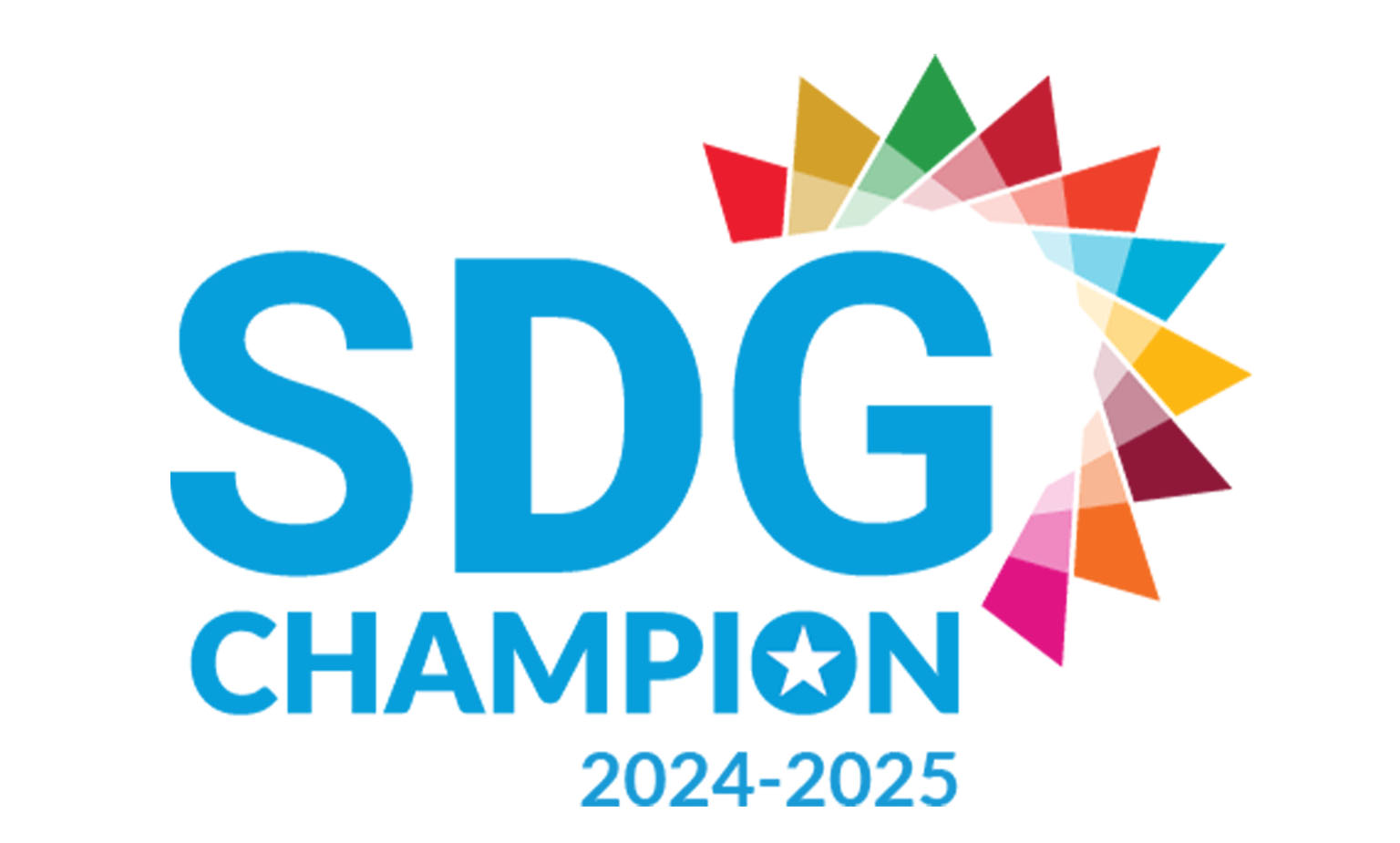
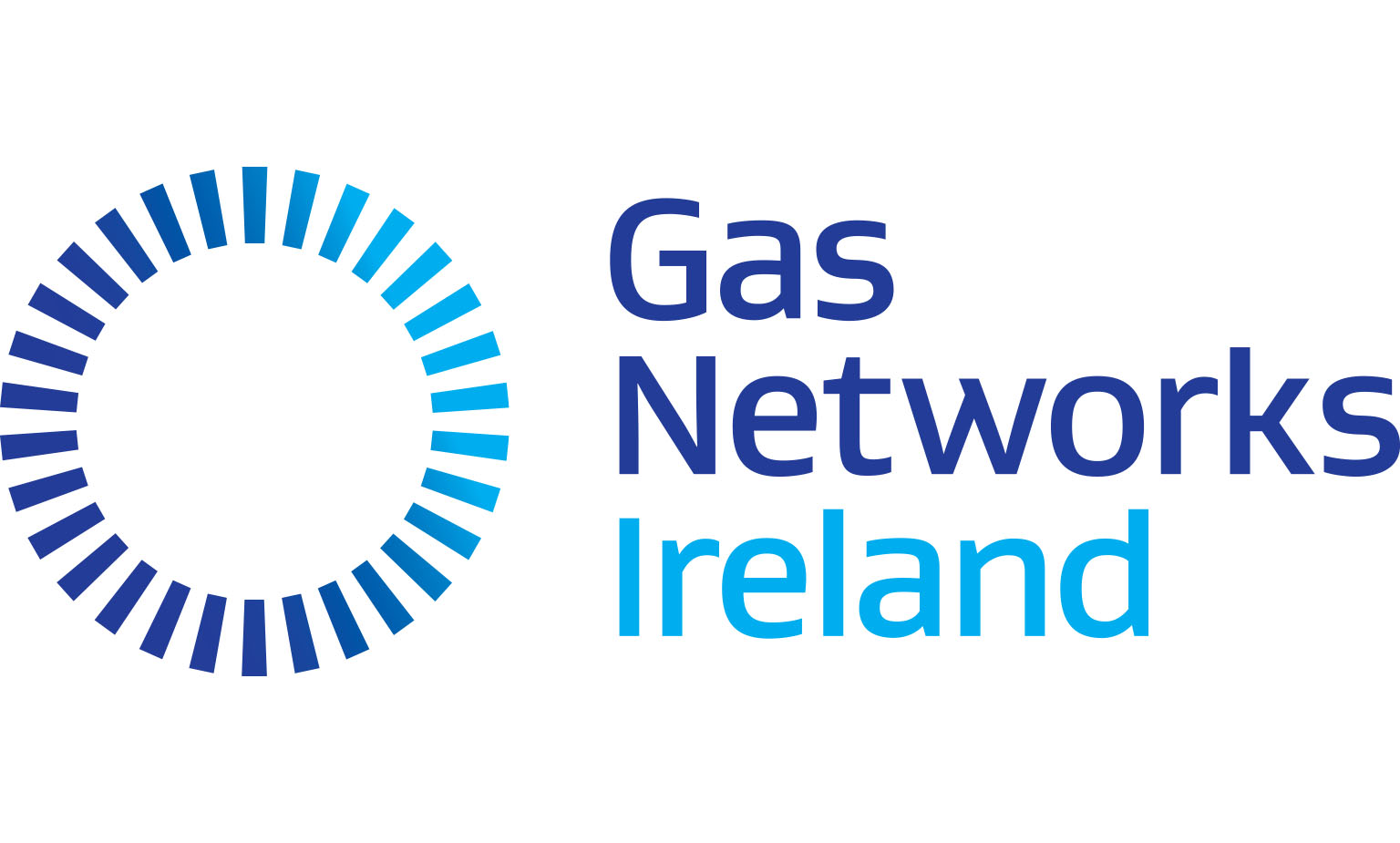
To read the full report visit:
W: www.gasnetworks.ie/pathway
